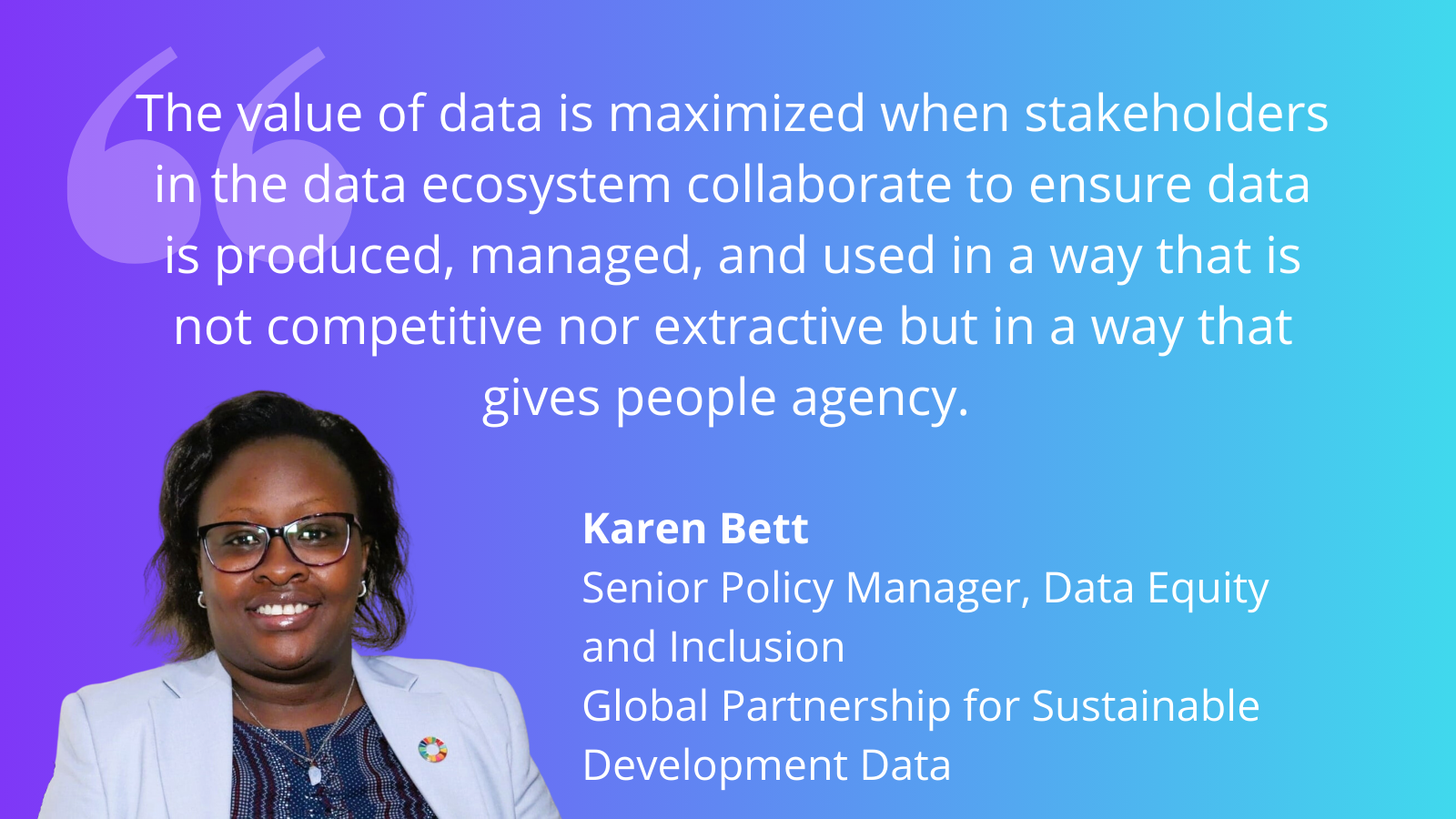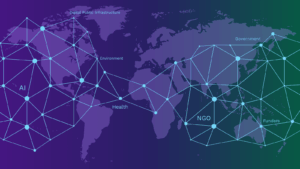This blog is part of a series from the Datasphere Initiative’s Africa Forum on Sandboxes for Data. The Datasphere Initiative is asking data policymakers and shapers across the region why Africa needs to responsibly unlock the value of data for all and how sandboxes might help catalyze ideas into action. Read more about the Africa Forum here and the blog series here.
Karen Bett, Senior Policy Manager, Data Equity and Inclusion, Global Partnership for Sustainable Development Data.
For me, responsibly unlocking the value of data for all takes several angles. I will break it down into three. First, to truly unlock the value of data is to recognize that strengthening data systems is a shared responsibility. The value of data is maximized when stakeholders in the data ecosystem collaborate to ensure data is produced, managed, and used in a way that is not competitive nor extractive but in a way that gives people agency.
Second, giving people agency in data ensures their needs and aspirations are well reflected in the data that is produced. Whose questions? Why? For what? These are important fundamental things that we should ask ourselves when we collect data. It is only by answering this, can data make true meaning in people’s lives. The way to give people agency can take various ways: it could be in the methodologies we apply in collecting data; it could be in the way we engage people in identifying data needs; and most importantly, it could be in the way we ensure data is available and accessible for it to be put to good use.
As Ashley Judd mentioned at the just concluded UN General Assembly: “Data is about individual lives. Each digit represents a heartbeat, and the need for relief from suffering and inequality and hope.”
Lastly, data is such a treasured asset that we must all take the responsibility of safeguarding it. Safeguarding data starts by ensuring we only collect the data that we need. It goes on to ensure that the way it is collected and analyzed is done ethically and does not put any individual or community at risk. It further ensures that the way the data is stored or re-used does not infringe on people’s right to privacy and confidentiality or risk being misused.
Data governance efforts have evolved quite fast in the last decade or so. This has been driven by many factors including rapid digitization in the continent, growth of the private sector, and the demographic dividend of the youth who are catalysts of the 4th industrial revolution. All these factors position the continent to influence the future of AI and its governance as a sandbox where ways to properly govern AI will evolve and be re-imagined. The challenge however will be that there is a risk for AI governance to be reactive rather than proactive if not carefully developed and governed. This could end up propagating harmful data practices instead of data practices that are responsible and accountable.
What I really value about the potential of sandboxes, is that they position the continent in the driving seat of shaping the future and the governance of AI. Only through testing and evolving AI governance can we develop robust systems to govern AI and genuinely improve people’s lives. The continent is a great space for this, given the high demand for technology to solve real problems – be it hunger, good health, or effective transport systems that ultimately improve people’s lives. For sandboxes to be impactful, I would go back to my initial points on what responsibly unlocking the value of data should look like.
This is work that we are leading as the Global Partnership on Data Governance/ AI:
- AI Practitioners Guide for Kenya
- Effective and Ethical Data Sharing at Scale
- Governing data to benefit people: Decision-making that builds trust and accountability
- Read more from other contributors in this blog series here
- Read more about the Africa Forum on Sandboxes here
- The Datasphere Initiative has launched a complete online learning experience: “A Guide to Cross-Border Sandboxes for Data.” Enroll for the online course here.
Karen leads the Inclusive data portfolio at the Global Partnership for Sustainable Development Data. The Global Partnership is a network of over 700 private sector, academic, and civil society organizations, and governments working to leverage the power of data to change minds, policies, and lives to achieve the SDGs. Karen’s role includes outreach and partnerships for the Inclusive Data Charter, advocating for more inclusive data practices, and promoting the role of communities across the data value chain including on citizen-generated data. Karen has spent over 12 years working in international development. She is based in Nairobi, Kenya.




